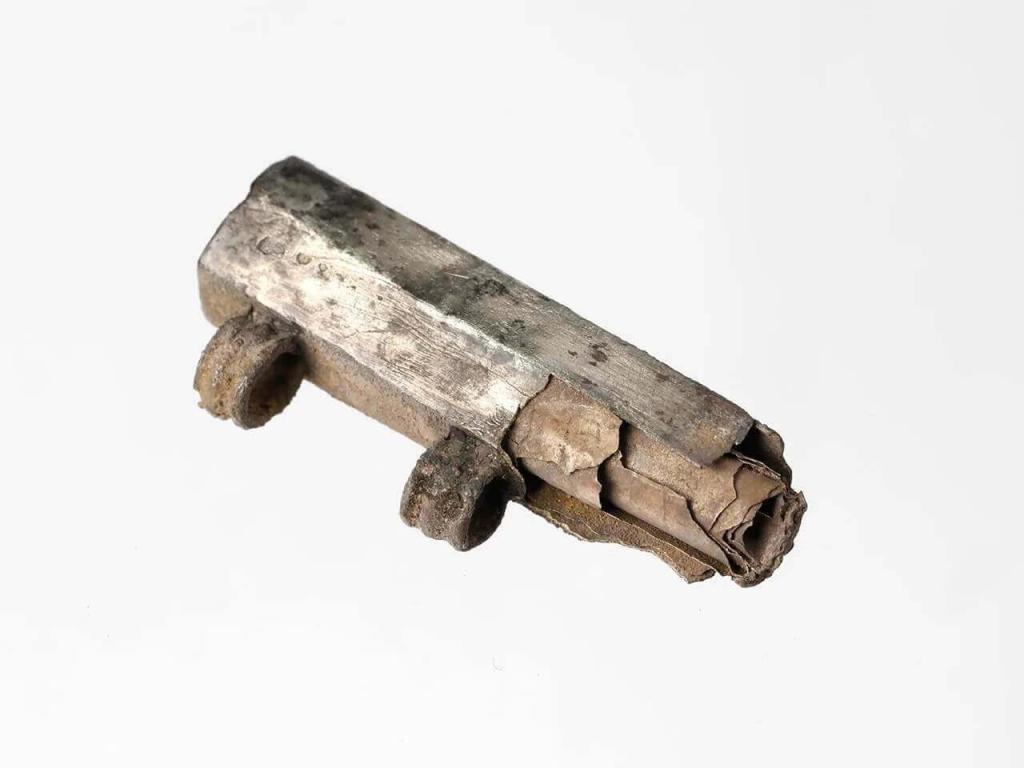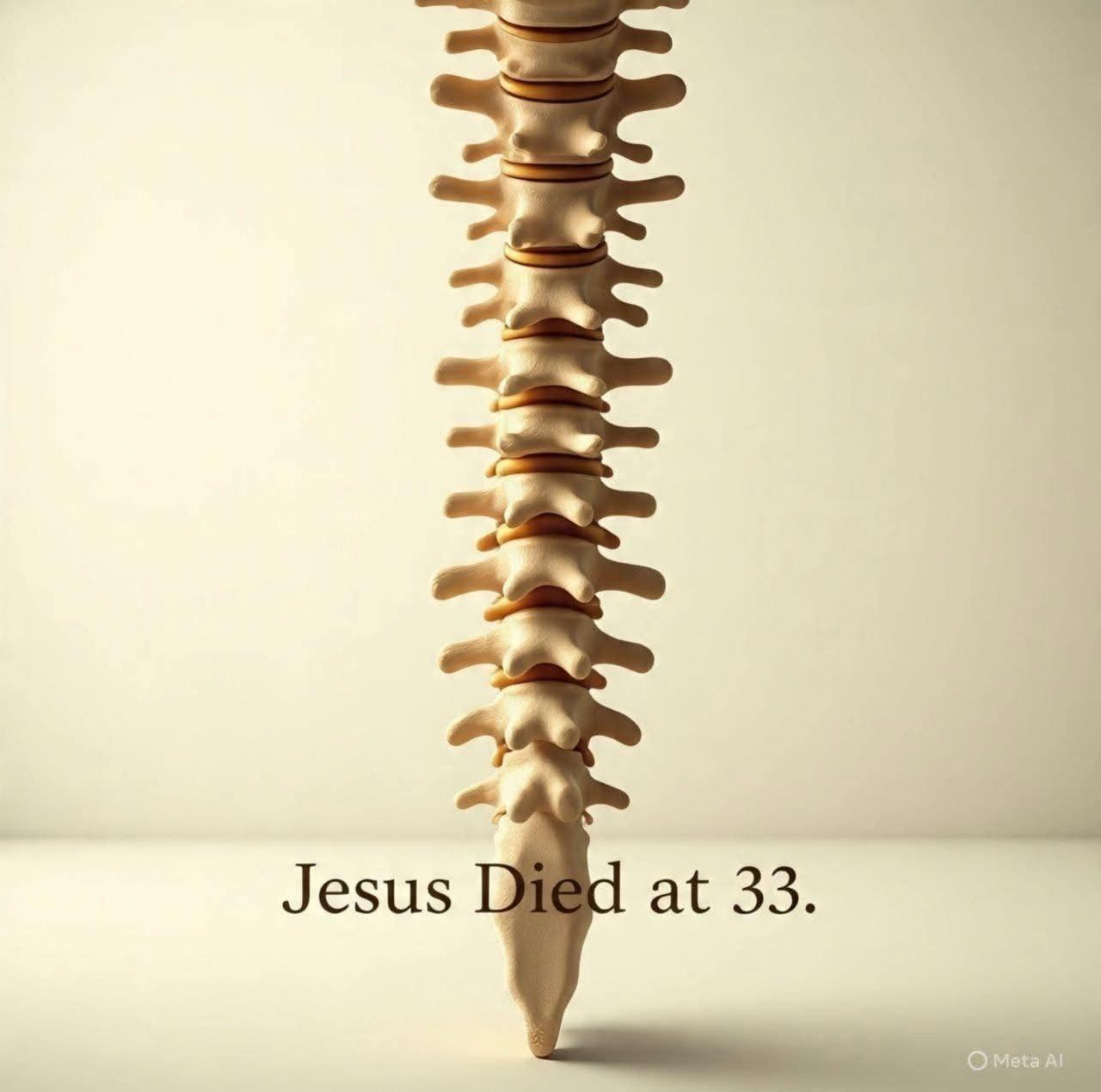7 things the Lord hates (spoiler: questioning doctrine isn't one of them)

By now, most people (in Christian circles, at least) will have heard about the Jars of Clay controversy. For those that are thinking "how on earth could there be controversy over some jars?" let me clarify: they are a contemporary Christian music band. The controversy is because the frontman, Dan Haseltine, tweeted some thoughts on the topic of gay marriage.
Shocking, I know.
This is what started it all:
The treatment of people as less than human based on the color of skin is crazy... Or gender, or sexual orientation for that matter.
— Dan Haseltine (@scribblepotemus) April 21, 2014
Not meaning to stir things up BUT... Is there a non-speculative or non "slippery slope" reason why gays shouldn't marry? I don't hear one.
— Dan Haseltine (@scribblepotemus) April 21, 2014
I'm trying to make sense of the conservative argument. But It doesn't hold up to basic scrutiny. Feels akin to women's suffrage.
— Dan Haseltine (@scribblepotemus) April 21, 2014
Plus many, many, more tweets as time went on, with the whole twitter/blogosphere alight with this madness. Apparently even some radio stations had pulled Jars of Clay's music because of this assumed support of gay marriage by Dan, and by association, the band too. Dan has since issued an apology on his blog, and expanded on his thoughts in ways which the twitter character limitations wouldn't allow him to previously.
But as much of a hot-button topic as gay rights within the Church is, it is not what I want to talk about now. No, what got me was the way in which the Christians reacted to this news about JoC and the tweets, and how all the bloggers etc. exploded with articles with some hints of condemnation.

Though I do agree that twitter probably wasn't the best place to voice such questions and thoughts, which I do think were genuine and not merely provocative, that doesn't excuse the way in which people responded.
It all comes across as very judgemental, mean and downright nasty in some comments. Completely Christ-like behaviour. Obviously.
The whole things just comes across very much with the tone of "you can't question this belief or that doctrine"; but which beliefs and doctrines — well that's entirely up to whoever you speak to! Though in recent times, questioning issues relating to homosexuality — whether secular or Christian related thoughts, can get you in some hot water with certain groups and people.
Which is exactly what happened with Jars of Clay. Just take a browse through Dan's twitter feed or the Jars of Clay Facebook page to see the reactions to his thinking out loud.
I can't embed Facebook comments, but to give an idea of some responses I'll post a few screenshots which I've taken, and some which Patheos also took when they covered the story:
It all comes across as very judgemental, mean and downright nasty in some comments.
And my "favourite" has got to be the call to go and basically commit suicide using a veiled reference to Luke 17:2 –
Since writing this will probably come across to some as though I'm not "toeing the party line" on the issue, this comment pretty much sums up my sentiments on the "gay issue" as far as this post will go:
Whether you agree, disagree, call it sin or not – the fact of the matter is is that the laws of the land (whichever land you happen to be in) are not based on our beliefs. You may say the Bible is your ultimate authority in and for life, but that doesn't make it so for everyone else, and especially not for those in government who dictate the laws. Sometimes I think the sooner we realise that, the better off the Church as a whole would be.
It was only last week I was writing a similar post about the online actions of Christians and how unloving they were in regards to Google not posting an Easter themed "doodle". This week it's the similarly unloving actions and attitudes towards someone who dared to question. It's not like it was asking or seeking heretical doctrine, but simply trying to get to the root of an issue. As a friend of mine also blogged last week, "Could your Evangelical Church be Unhealthy?" he addressed the issue of cult-like mindsets that can creep into some churches. Point 5 especially comes to mind now: "SACRED SCIENCE - The ideology is given special/sacred status and cannot be critiqued."
If no one is allowed to question and seek, then how can anyone come to the Faith fully and completely? Christianity is not "blind faith" (as much as some would try to say otherwise), but is based on the teachings and actions of a real man and was spread by the testimonies and accounts of eye-witnesses. Even before Jesus, the Psalmist declared, "O taste and see that the Lord is good; happy are those who take refuge in him" (Ps 34:8) — that's a challenge right there to do something, to actually try your faith and see that God is there and real. This faith is a demonstrable one.
But I digress. As to the title of this post:
Proverbs 6:16-19
There are six things that the Lord hates,
seven that are an abomination to him:
haughty eyes, a lying tongue,
and hands that shed innocent blood,
a heart that devises wicked plans,
feet that hurry to run to evil,
a lying witness who testifies falsely,
and one who sows discord in a family.
From the way Christians are reacting to things like this, whether online or not, I'm sure their attitudes will fall into at least three of these "things that the Lord hates."
- A lying tongue – As far as I could see online, the Jars of Clay frontman hadn't expressly stated whether he supported SSM (Same Sex Marriage) or not, but was just asking about the arguments surrounding the topic, yet many posts that I did see were saying that he'd come out as supporting and/or advocating for gay marriage!
- Haughty eyes– Now, I had to look up this word to make sense of it. It is defined as "arrogantly superior and disdainful." A quick skimming over the comments on Facebook and Twitter will show you the amount of arrogance and disdain on display.
- One who sows discord in a family – If we are meant to be all brothers and sisters together in Christ, then it follows that we are all one big family united by Spirit and not blood. The malicious attacks against someone for asking questions is definitely not uniting and is sowing plenty of discord.
Yes, Dan is a public figure and a Christian, so what he says and does has more far-reaching consequences than maybe our own non-celebrity lives do, but that doesn't mean we ought to verbally crucify the man, rightly or wrongly (plus it's not the first time things like this have happened, even on a smaller scale). While I do think that public figures should probably be answered publicly if they are acting against the Body of Christ on a public platform – there are better and more loving ways to do it.
We need to be more aware of our actions as Christians, and "abstain from all appearance of evil" (1 Thess 5:22). As Jesus said, "You will know them by their fruits" and if you have love for one another, "everyone will know that you are my disciples" (Matt 7:16; Jn 13:35).
There are ways to discuss and correct people who have wronged you (cf. Matt 18:15; Galatians 6:1), or who you think are saying/teaching the wrong things (cf. Acts 18:26), or times to just listen and wait (cf. James 1:19-20; Proverbs 18:13).
The Kingdom of God is counter-culture. That means the ethics and morals often go against what secular culture says and approves of. Just look at the Sermon on the Mount in Matthew 5-7. Everything Jesus says to do it practically the opposite of what you'd expect or want to do!
You've got no food – don't worry and trust God.
Someone slaps you in the face – offer them another go.
Forced to do something for another – carry on beyond expectations.
Persecuted and hated by people – go and pray for them instead of retaliating.
And of course, above all, love your neighbour. That sums it all up. Laws and politics may (and probably often) do disagree with our Christian ethics, and while there could be some noble causes to change certain laws which do oppress, endanger and strip people of equality and justice, as followers of Jesus; as those who claim to be born-again, Spirit-filled, as having the mind of Christ – the only laws we should fight to change are those which go against justice and equality for all.
Our lives, as those lived out by following the teachings and examples of Jesus, by making the Kingdom of Heaven a reality on Earth, should influence and change our immediate environment and surroundings – through the power of the Spirit in us and by love.
I've said what the Lord hates, but what does He love? "For I the Lord love justice, I hate robbery and wrongdoing" (Isa. 61:8)
Isa. 1:16-17
Wash yourselves; make yourselves clean;
remove the evil of your doings
from before my eyes;
cease to do evil,
learn to do good;
seek justice,
rescue the oppressed,
defend the orphan,
plead for the widow.
Deut. 10:17-18
For the Lord your God is God of gods and Lord of lords, the great God, mighty and awesome, who is not partial and takes no bribe, who executes justice for the orphan and the widow, and who loves the strangers, providing them food and clothing.
James 1:27
Religion that is pure and undefiled before God, the Father, is this: to care for orphans and widows in their distress, and to keep oneself unstained by the world.
This is the nature of God. If our actions don't match those which Jesus taught and displayed, if they don't match up with this sense of equal justice for all, then can those actions really come from the Spirit of God who is meant to motivate and move us?
And before your thoughts are dragged back to the issue of Same Sex Marriage...
1 Cor 5:12
For what have I to do with judging those outside? Is it not those who are inside that you are to judge?
So I don't care what cause you lobby for or against, if it isn't something which will ultimately display the love and justice of Christ to others, then of what use is it?
Leave a comment Like Back to Top Seen 1K times Liked 0 times
Enjoying this content?
Support my work by becoming a patron on Patreon!
By joining, you help fund the time, research, and effort that goes into creating this content — and you’ll also get access to exclusive perks and updates.
Even a small amount per month makes a real difference. Thank you for your support!
Subscribe to Updates
If you enjoyed this, why not subscribe to free email updates and join over 864 subscribers today!
My new book is out now! Order today wherever you get books
Recent Posts
Luke J. Wilson | 19th August 2025 | Fact-Checking
A poetic post has been circulating widely on Facebook, suggesting that our anatomy mirrors various aspects of Scripture. On the surface it sounds inspiring, but when we take time to weigh its claims, two main problems emerge. The viral post circulating on Facebook [Source] First, some of its imagery unintentionally undermines the pre-existence of Christ, as if Jesus only “held the earth together” for the 33 years of His earthly life. Second, it risks reducing the resurrection to something like biological regeneration, as if Jesus simply restarted after three days, instead of being raised in the miraculous power of God. Alongside these theological dangers, many of the scientific claims are overstated or symbolic rather than factual. Let’s go through them one by one. 1. “Jesus died at 33. The human spine has 33 vertebrae. The same structure that holds us up is the same number of years He held this Earth.” The human spine does generally have 33 vertebrae, but that number includes fused bones (the sacrum and coccyx), and not everyone has the same count. Some people have 32 or 34. More importantly, the Bible never says Jesus was exactly 33 when He died — Luke tells us He began His ministry at “about thirty” (Luke 3:23), and we know His public ministry lasted a few years, but His precise age at death is a tradition, not a biblical statement. See my other recent article examining the age of Jesus here. Theologically, the phrase “the same number of years He held this Earth” is problematic. Jesus did not hold the world together only for 33 years. The eternal Word was with God in the beginning (John 1:1–3), and “in Him all things hold together” (Colossians 1:17). Hebrews says He “sustains all things by His powerful word” (Hebrews 1:3). He has always upheld creation, before His incarnation, during His earthly ministry, and after His resurrection. To imply otherwise is to risk undermining the pre-existence of Christ. 2. “We have 12 ribs on each side. 12 disciples. 12 tribes of Israel. God built His design into our bones.” Most people do have 12 pairs of ribs, though some are born with an extra rib, or fewer. The number 12 is certainly biblical: the 12 tribes of Israel (Genesis 49), the 12 apostles (Matthew 10:1–4), and the 12 gates and foundations of the New Jerusalem (Revelation 21). But there’s no biblical connection between rib count and these symbolic twelves. This is a case of poetic association, not design woven into our bones. The only real mention of ribs in Scripture is when Eve is created from one of Adam’s ribs in Genesis 2:21–22, which has often led to the teaching in some churches that men have one less rib than women (contradicting this new claim)! 3. “The vagus nerve runs from your brain to your heart and gut. It calms storms inside the body. It looks just like a cross.” The vagus nerve is real and remarkable. It regulates heart rate, digestion, and helps calm stress, and doctors are even using vagus nerve stimulation as therapy for epilepsy, depression, and inflammation showing it really does “calm storms” in the body. But it does not look like a cross anatomically. The language about “calming storms” may echo the way Jesus calmed the storm on the Sea of Galilee (Mark 4:39), but here again the poetic flourish stretches science (and Scripture) beyond what’s accurate. 4. “Jesus rose on the third day. Science tells us that when you fast for 3 days, your body starts regenerating. Old cells die. New ones are born. Healing begins. Your body literally resurrects itself.” There’s a serious theological problem here. To equate Jesus’ resurrection with a biological “regeneration” after fasting is to misrepresent what actually happened. Fasting can indeed trigger cell renewal and immune repair, but it cannot bring the dead back to life. It’s still a natural process that happens...
Luke J. Wilson | 08th July 2025 | Islam
“We all worship the same God”. Table of Contents 1) Where YHWH and Allah Appear Similar 2) Where Allah’s Character Contradicts YHWH’s Goodness 3) Where Their Revelations Directly Contradict Each Other 4) YHWH’s Love for the Nations vs. Allah’s Commands to Subjugate 5) Can God Be Seen? What the Bible and Qur’an Say 6) Salvation by Grace vs. Salvation by Works Conclusion: Same God? Or Different Revelations? You’ve heard it from politicians, celebrities, and even some pastors. It’s become something of a modern mantra, trying to shoehorn acceptance of other beliefs and blend all religions into one, especially the Abrahamic ones. But what if the Bible and Qur’an tell different stories? Let’s see what their own words reveal so you can judge for yourself. This Tweet recently caused a stir on social media 1) Where YHWH and Allah Appear Similar Many point out that Jews, Christians, and Muslims share a belief in one eternal Creator God. That’s true — up to a point. Both the Bible and Qur’an describe God as powerful, all-knowing, merciful, and more. Here’s a list comparing some of the common shared attributes between YHWH and Allah, with direct citations from both Scriptures: 26 Shared Attributes of YHWH and Allah According to the Bible (NRSV) and the Qur’an Eternal YHWH: “From everlasting to everlasting you are God.” — Psalm 90:2 Allah: “He is the First and the Last…” — Surah 57:3 Creator YHWH: “In the beginning God created the heavens and the earth.” — Genesis 1:1 Allah: “The Originator of the heavens and the earth…” — Surah 2:117 Omnipotent (All-Powerful) YHWH: “Nothing is too hard for you.” — Jeremiah 32:17 Allah: “Allah is over all things competent.” — Surah 2:20 Omniscient (All-Knowing) YHWH: “Even before a word is on my tongue, O LORD, you know it.” — Psalm 139:4 Allah: “He knows what is on the land and in the sea…” — Surah 6:59 Omnipresent (Present Everywhere) YHWH: “Where can I go from your Spirit?” — Psalm 139:7–10 Allah: “He is with you wherever you are.” — Surah 57:4 Holy YHWH: “Holy, holy, holy is the LORD of hosts.” — Isaiah 6:3 Allah: “The Holy One (Al-Quddus).” — Surah 59:23 Just YHWH: “A God of faithfulness and without injustice.” — Deuteronomy 32:4 Allah: “Is not Allah the most just of judges?” — Surah 95:8 Merciful YHWH: “The LORD, merciful and gracious…” — Exodus 34:6 Allah: “The Most Gracious, the Most Merciful.” — Surah 1:1 Compassionate YHWH: “As a father has compassion on his children…” — Psalm 103:13 Allah: “He is the Forgiving, the Affectionate.” — Surah 85:14 Faithful YHWH: “Great is your faithfulness.” — Lamentations 3:22–23 Allah: “Indeed, the promise of Allah is truth.” — Surah 30:60 Unchanging YHWH: “For I the LORD do not change.” — Malachi 3:6 Allah: “None can change His words.” — Surah 6:115 Sovereign YHWH: “The LORD has established his throne in the heavens…” — Psalm 103:19 Allah: “Blessed is He in whose hand is dominion…” — Surah 67:1 Loving YHWH: “God is love.” — 1 John 4:8 Allah: “Indeed, my Lord is Merciful and Affectionate (Al-Wadud).” — Surah 11:90 Forgiving YHWH: “I will not remember your sins.” — Isaiah 43:25 Allah: “Allah forgives all sins…” — Surah 39:53 Wrathful toward evil YHWH: “The LORD is a jealous and avenging God…” — Nahum 1:2 Allah: “For them is a severe punishment.” — Surah 3:4 One/Unique YHWH: “The LORD is one.” — Deuteronomy 6:4 Allah: “Say: He is Allah, One.” — Surah 112:1 Jealous of worship YHWH: “I the LORD your God am a jealous God.” �...
Luke J. Wilson | 05th June 2025 | Blogging
As we commemorated the 500th anniversary of the Protestant Reformation this year, the familiar image of Martin Luther striding up to the church door in Wittenberg — hammer in hand and fire in his eyes — has once again taken centre stage. It’s a compelling picture, etched into the imagination of many. But as is often the case with historical legends, closer scrutiny tells a far more nuanced and thought-provoking story. The Myth of the Door: Was the Hammer Ever Raised? Cambridge Reformation scholar Richard Rex is one among several historians who have challenged the romanticised narrative. “Strangely,” he observes, “there’s almost no solid evidence that Luther actually went and nailed them to the church door that day, and ample reasons to doubt that he did.” Indeed, the first image of Luther hammering up his 95 Theses doesn’t appear until 1697 — over 180 years after the fact. Eric Metaxas, in his recent biography of Luther, echoes Rex’s scepticism. The earliest confirmed action we can confidently attribute to Luther on 31 October 1517 is not an act of public defiance, but the posting of two private letters to bishops. The famous hammer-blow may never have sounded at all. Conflicting Accounts Philip Melanchthon, Luther’s successor and first biographer, adds another layer of complexity. He claimed Luther “publicly affixed” the Theses to the door of All Saints’ Church, but Melanchthon wasn’t even in Wittenberg at the time. Moreover, Luther himself never mentioned posting the Theses publicly, even when recalling the events years later. Instead, he consistently spoke of writing to the bishops, hoping the matter could be addressed internally. At the time, it was common practice for a university disputation to be announced by posting theses on church doors using printed placards. But no Wittenberg-printed copies of the 95 Theses survive. And while university statutes did require notices to be posted on all church doors in the city, Melanchthon refers only to the Castle Church. It’s plausible Luther may have posted the Theses later, perhaps in mid-November — but even that remains uncertain. What we do know is that the Theses were quickly circulated among Wittenberg’s academic elite and, from there, spread throughout the Holy Roman Empire at a remarkable pace. The Real Spark: Ink, Not Iron If there was a true catalyst for the Reformation, it wasn’t a hammer but a printing press. Luther’s Latin theses were swiftly reproduced as pamphlets in Basel, Leipzig, and Nuremberg. Hundreds of copies were printed before the year’s end, and a German translation soon followed, though it may never have been formally published. Within two weeks, Luther’s arguments were being discussed across Germany. The machinery of mass communication — still in its relative infancy — played a pivotal role in what became a theological, political, and social upheaval. The Letters of a Conscientious Pastor Far from the bold revolutionary of popular imagination, Luther appears in 1517 as a pastor deeply troubled by the abuse of indulgences, writing with respectful concern to those in authority. In his letter to Archbishop Albrecht of Mainz, he humbly addresses the archbishop as “Most Illustrious Prince,” and refers to himself as “the dregs of humanity.” “I, the dregs of humanity, have so much boldness that I have dared to think of a letter to the height of your Sublimity,” he writes — hardly the voice of a man trying to pick a fight. From Whisper to Roar Luther’s initial appeal through formal channels was, predictably, ignored. He was advised not to make trouble. But as opposition mounted and corruption remained unchecked, the once quiet reformer grew louder. His theological convictions deepened, and his public persona evolved. The lion did eventually roar — but not on October 31. A Catholic Reformer, Not a Protestant Founder It’s vital to remem...
Luke J. Wilson | 20th May 2025 | Islam
You are not alone. Around the world, many Muslims — people who already believe in one God, pray, and seek to live righteously — are drawn to know more about Jesus (ʿĪsā in Arabic). Some have heard He is more than a prophet. Some have sensed His presence in a dream or vision. And some simply long to know God more deeply, personally, and truly. So what does it mean to become a Christian? And how can you take that step? This guide is for you. 1. What Christians Believe About God and Jesus ➤ One God, Eternal and Good Christians believe in one God — the same Creator known to Abraham, Moses, and the prophets. But we also believe God is more personal and relational than many realise. In His love, He has revealed Himself as Father, Son (Jesus), and Holy Spirit — not three gods, but one God in three persons. ➤ Jesus Is More Than a Prophet Muslims honour Jesus as a great prophet, born of the virgin Mary. Christians also affirm this — but go further. The Bible teaches that Jesus is the Word of God (Kalimat Allāh), who became flesh to live among us. He performed miracles, healed the sick, raised the dead — and lived without sin.Jesus came not just to teach but to save — to bring us back to God by bearing our sins and rising again in victory over death. 2. Why Do We Need Saving? ➤ The Problem: Sin All people — no matter their religion — struggle with sin. We lie, get angry, feel jealous, act selfishly, or fail to love God fully. The Bible says: “All have sinned and fall short of the glory of God.” (Romans 3:23) Sin separates us from God. And no matter how many good deeds we do, we can never make ourselves perfect or holy before Him. ➤ The Solution: Jesus Because God loves us, He did not leave us in our sin. He sent Jesus, His eternal Word, to live as one of us. Jesus died willingly, offering His life as a sacrifice for our sins, then rose again on the third day. “But God proves his love for us in that while we still were sinners Christ died for us.” (Romans 5:8) 3. How Do I Become a Christian? Becoming a Christian is not about joining a Western religion. It’s about entering a relationship with God through faith in Jesus Christ. Here is what the Bible says: ✝️ 1. Believe in Jesus Believe that Jesus is the Son of God, that He died for your sins, and that He rose again. “If you confess with your lips that Jesus is Lord and believe in your heart that God raised him from the dead, you will be saved.” (Romans 10:9) 💔 2. Repent of Your Sins Turn away from sin and ask God to forgive you. This is called repentance. It means being truly sorry and choosing a new way. “Repent therefore, and turn to God so that your sins may be wiped out.” (Acts 3:19) 💧 3. Be Baptised Jesus commands His followers to be baptised in water as a sign of their new life. Baptism represents washing away your old life and rising into a new one with Jesus. “Repent and be baptised every one of you in the name of Jesus Christ so that your sins may be forgiven.” (Acts 2:38) 🕊️ 4. Receive the Holy Spirit When you believe in Jesus, God gives you the Holy Spirit to live within you, guiding you, comforting you, and helping you follow His will. “You received the Spirit of adoption, by whom we cry, ‘Abba! Father!’” (Romans 8:15) 🧎 5. Begin a New Life As a Christian, you are born again — spiritually renewed. You begin to grow in faith, love, and holiness. You read the Bible, pray, fast, and gather with other believers. Your life is no longer your own; you now live for God. 4. What Does a Christian Life Look Like? Jesus said: “If anyone wants to become my followers, let them deny themselves and take up their cross and follow me.” (Matthew 16:24) This means: Loving God with all your heart Loving your neighbour — even your enemies Forgiving others ...





















